Gallery: A look back at the Amstel Gold Race
Looking back at the recent past in the Dutch Classic
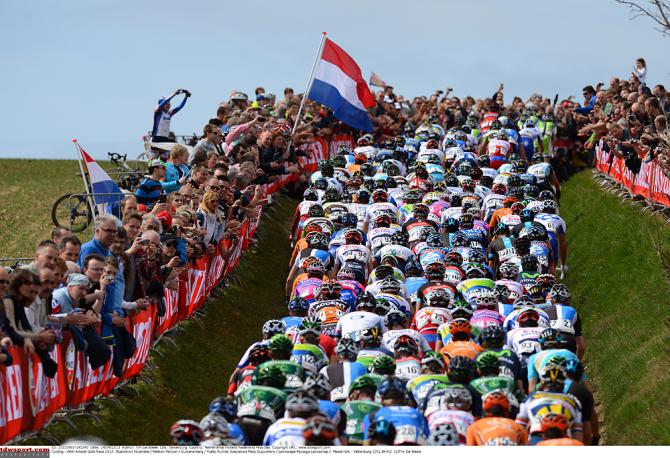
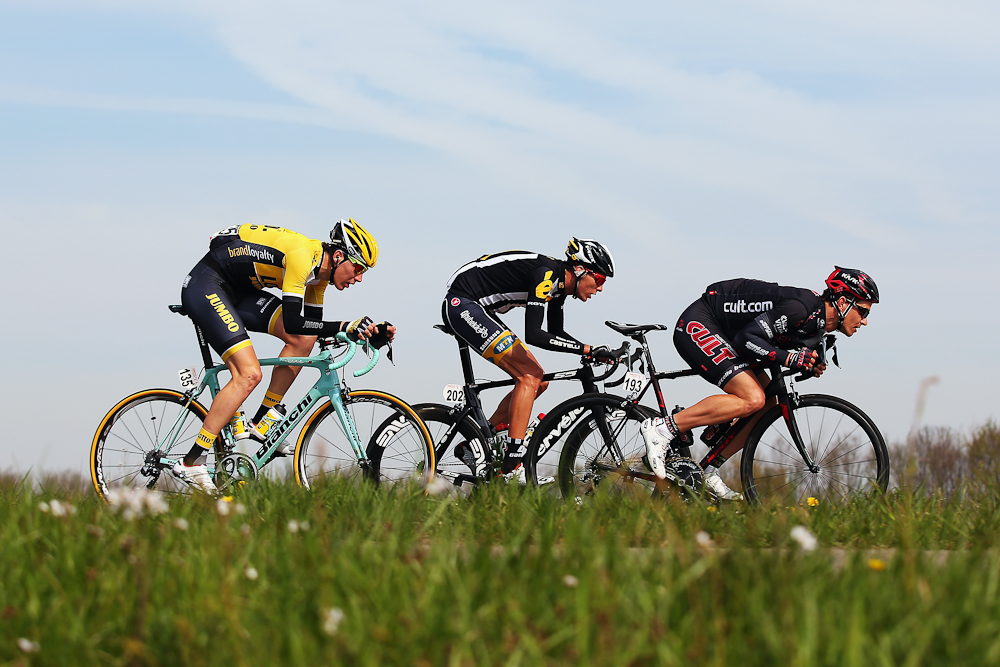
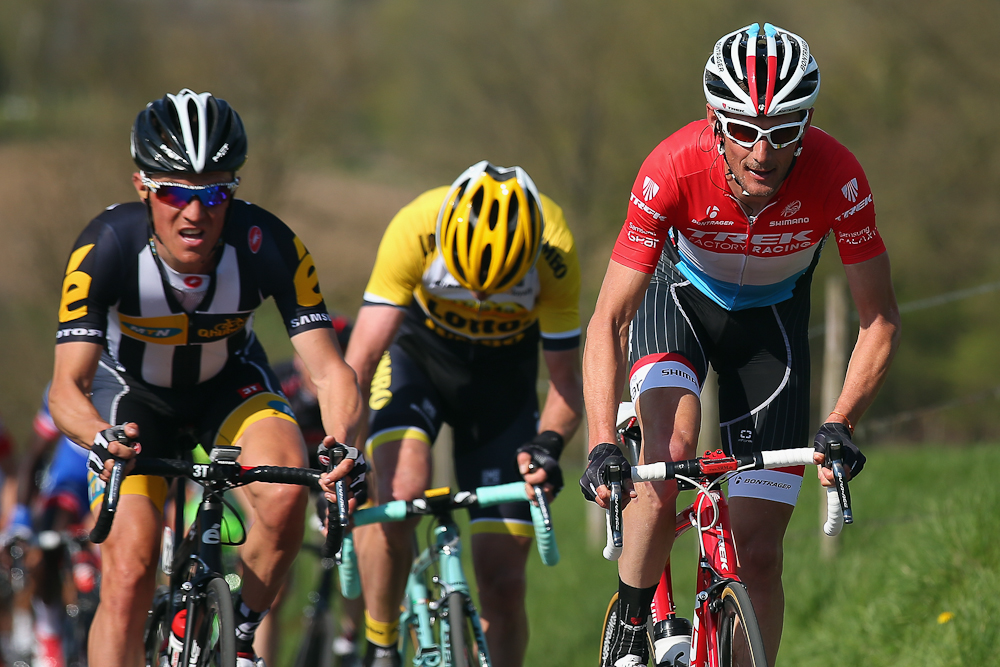
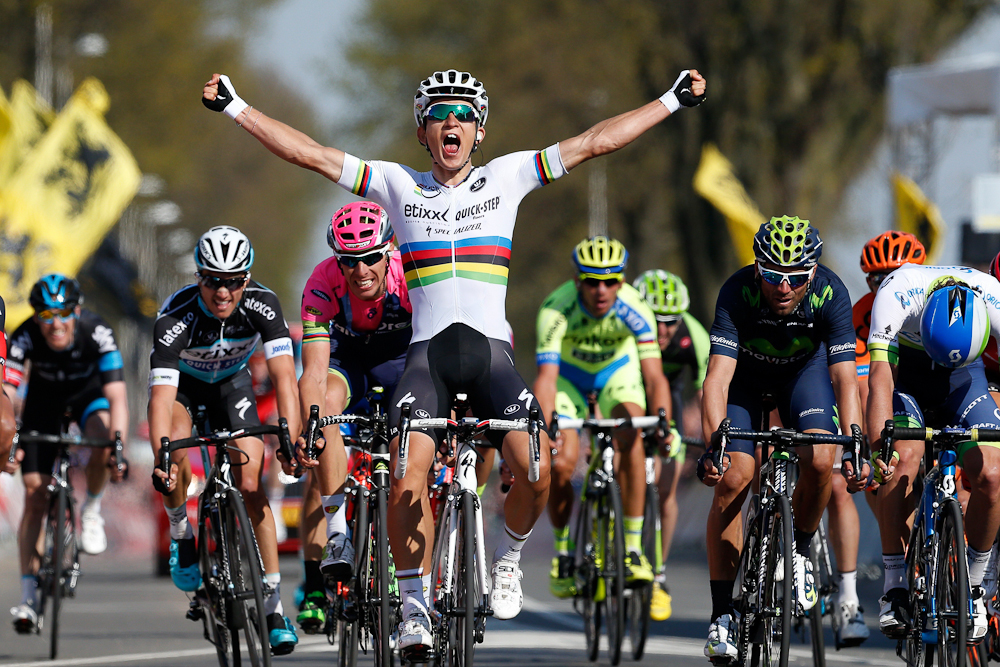
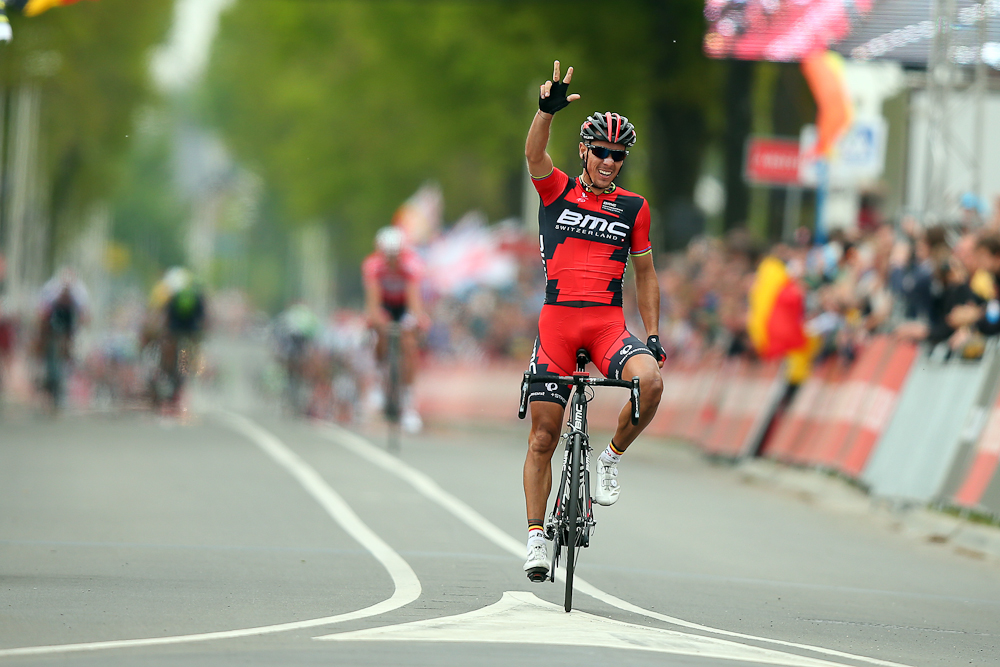
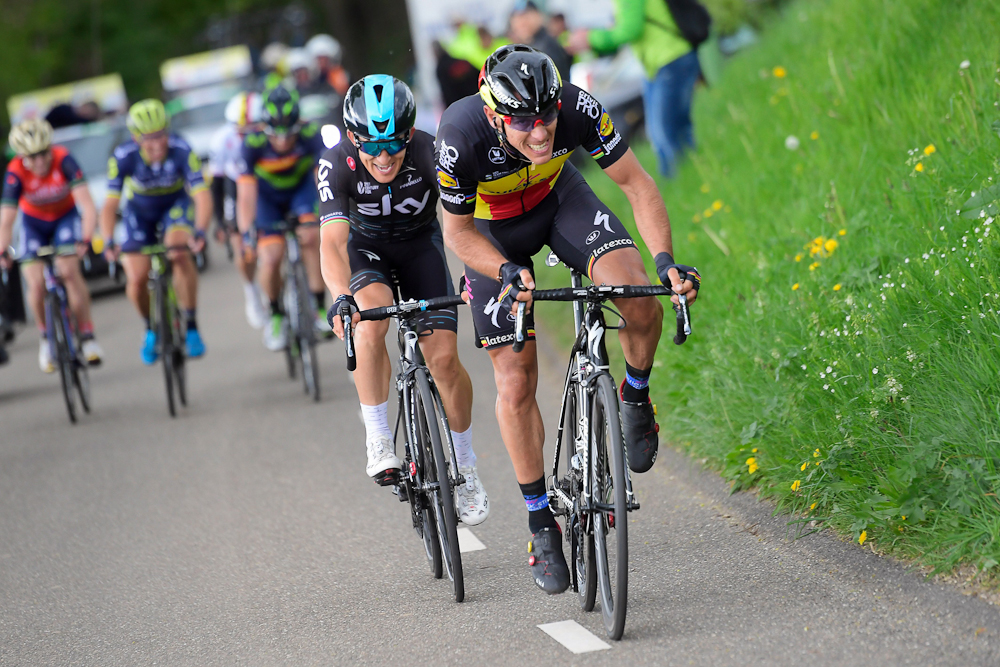
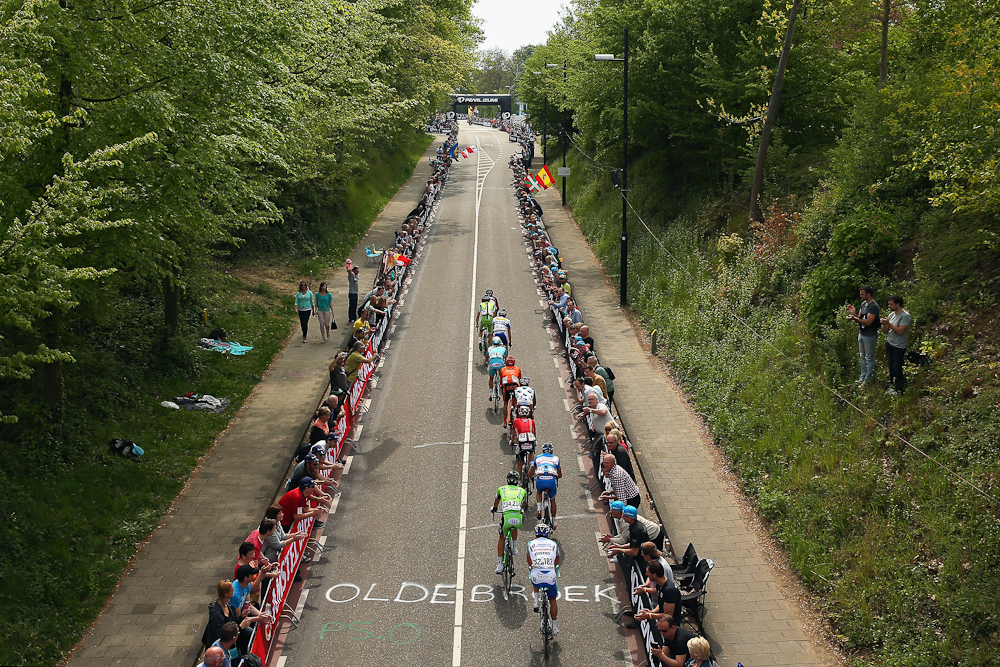
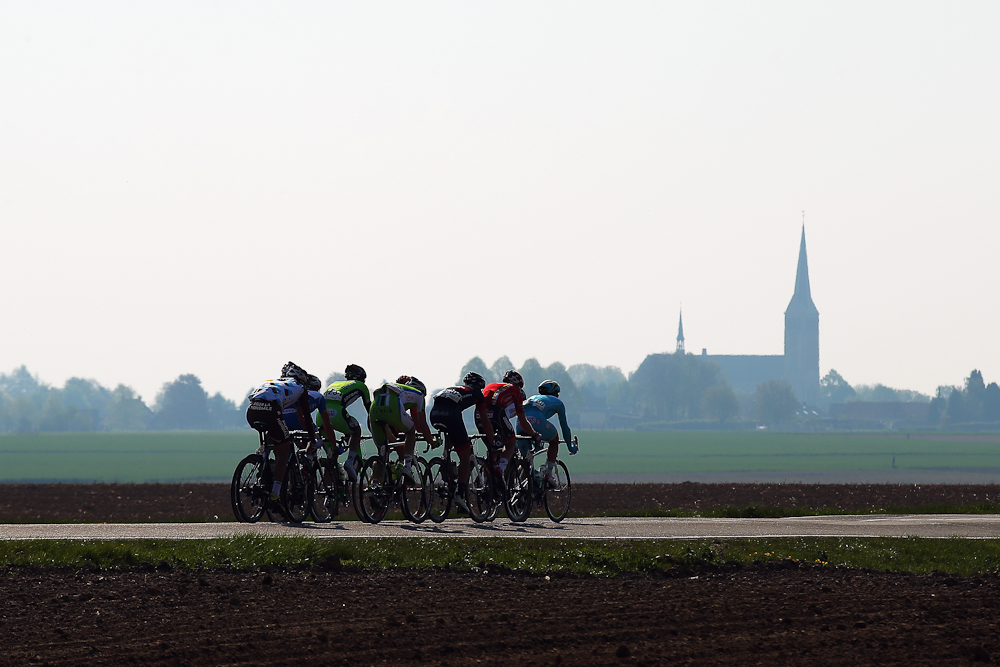
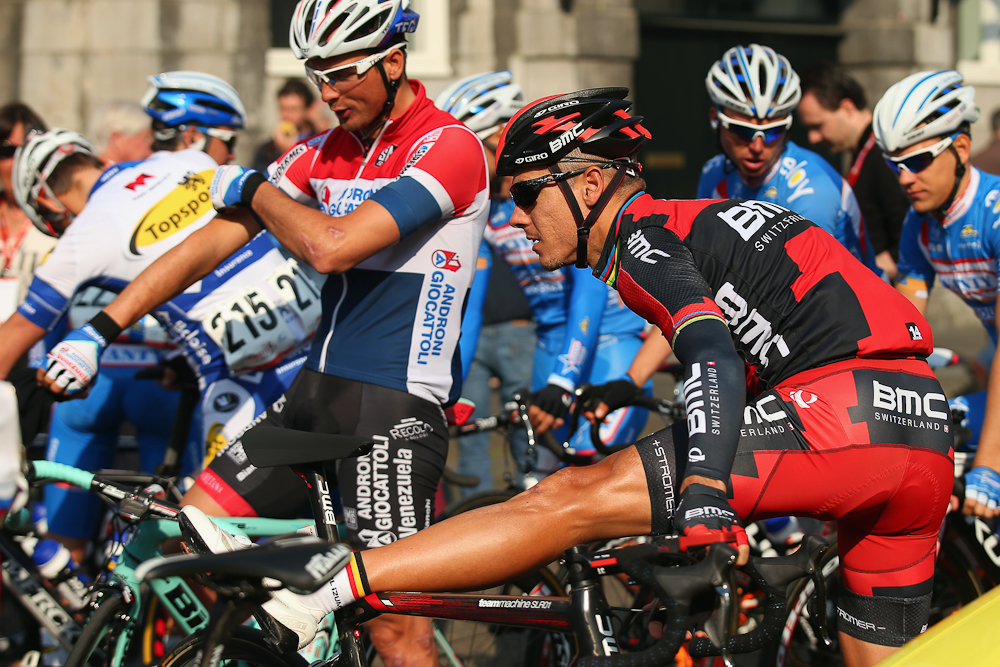
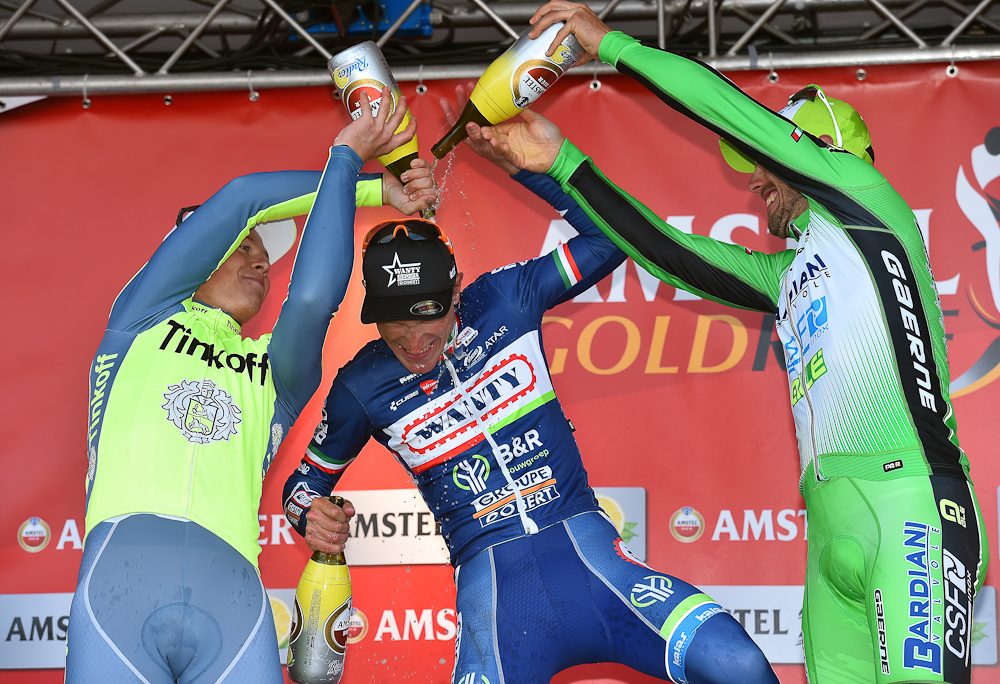
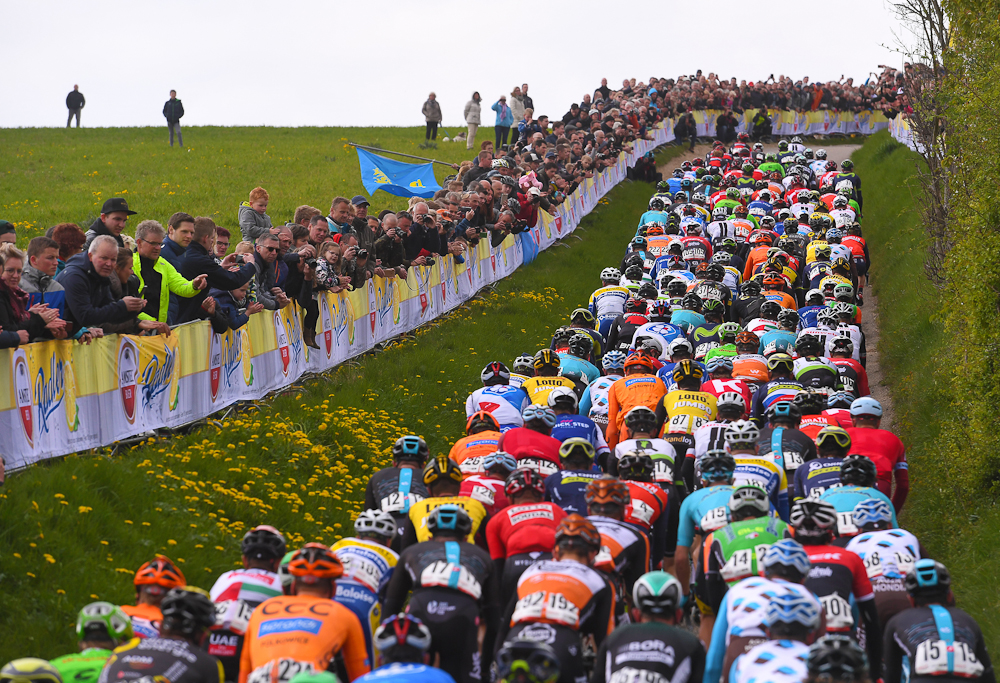
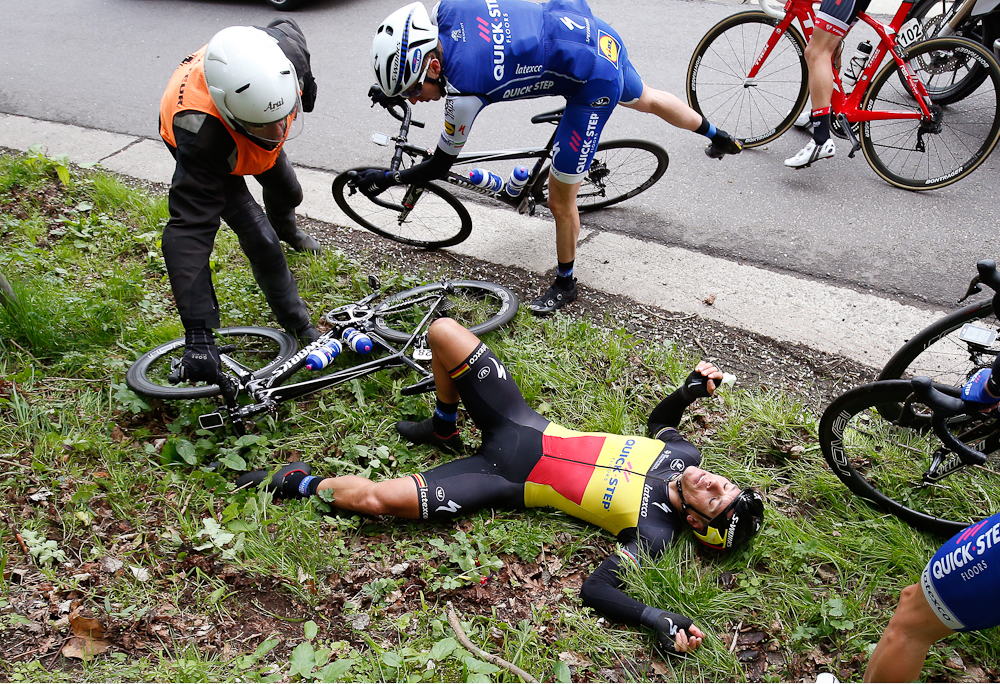
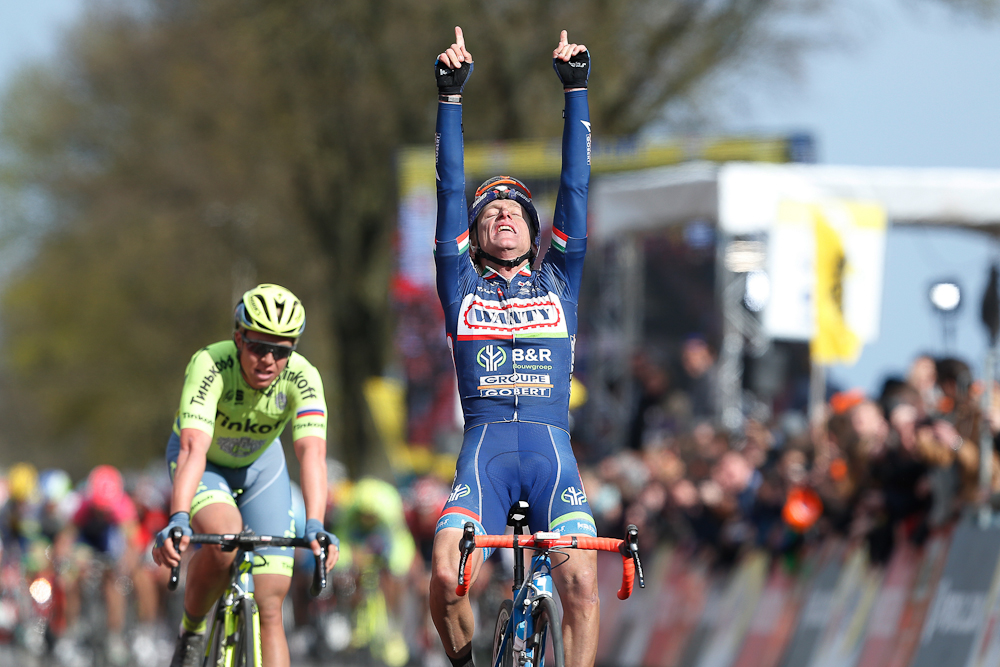
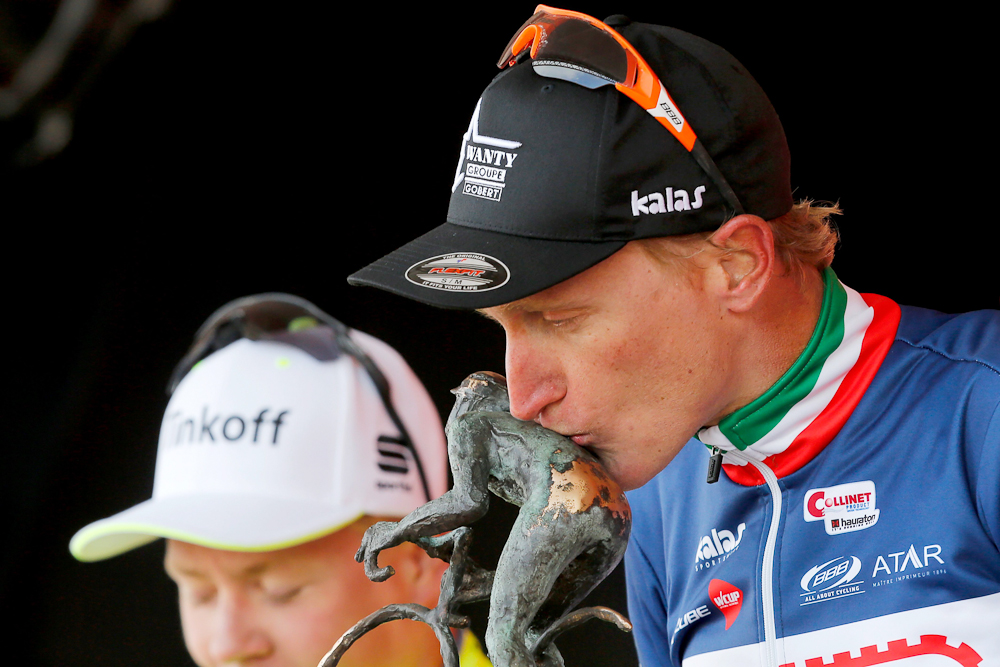
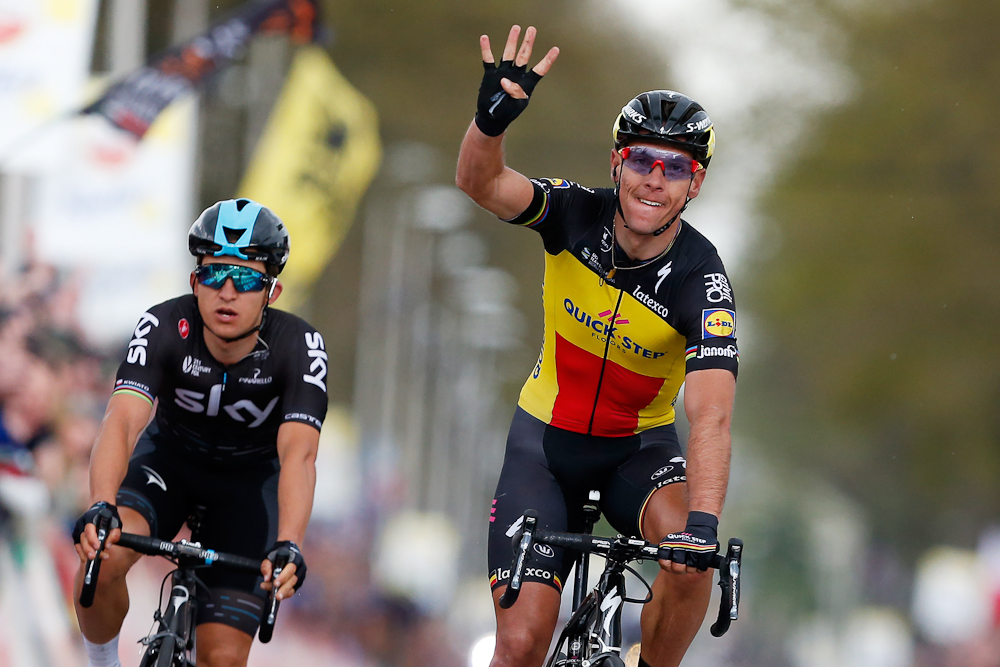
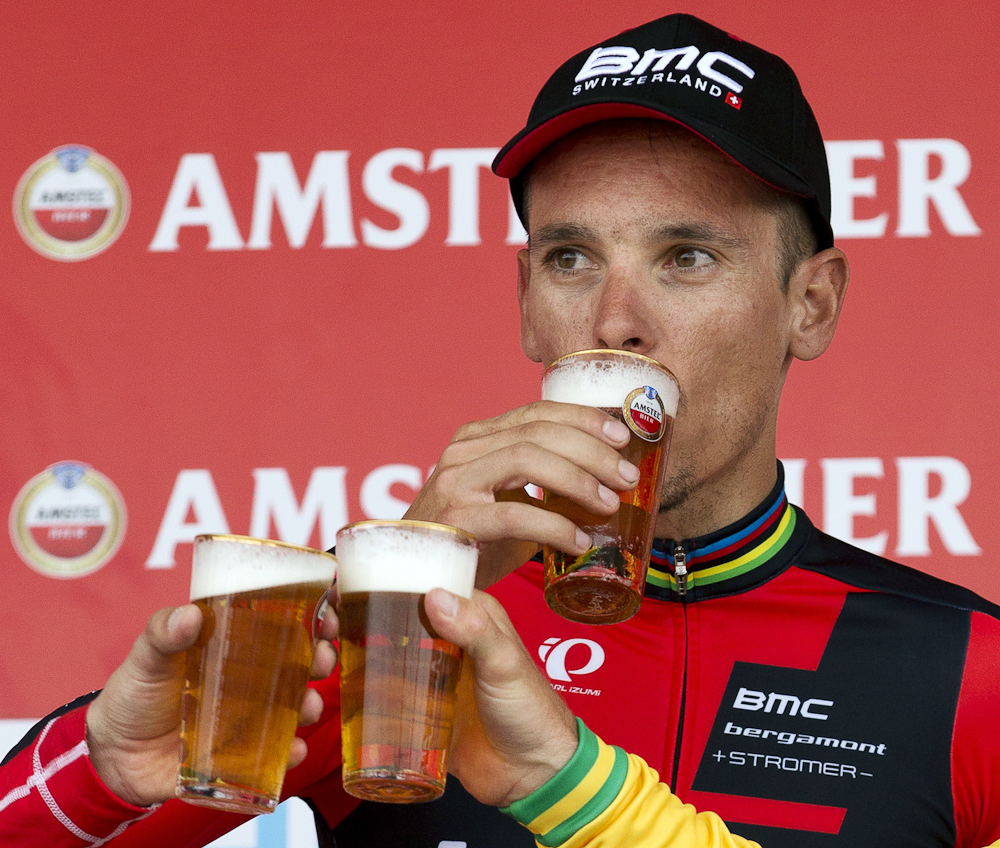
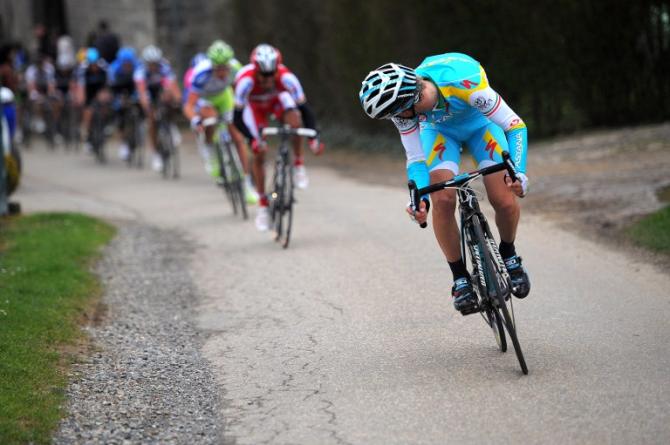
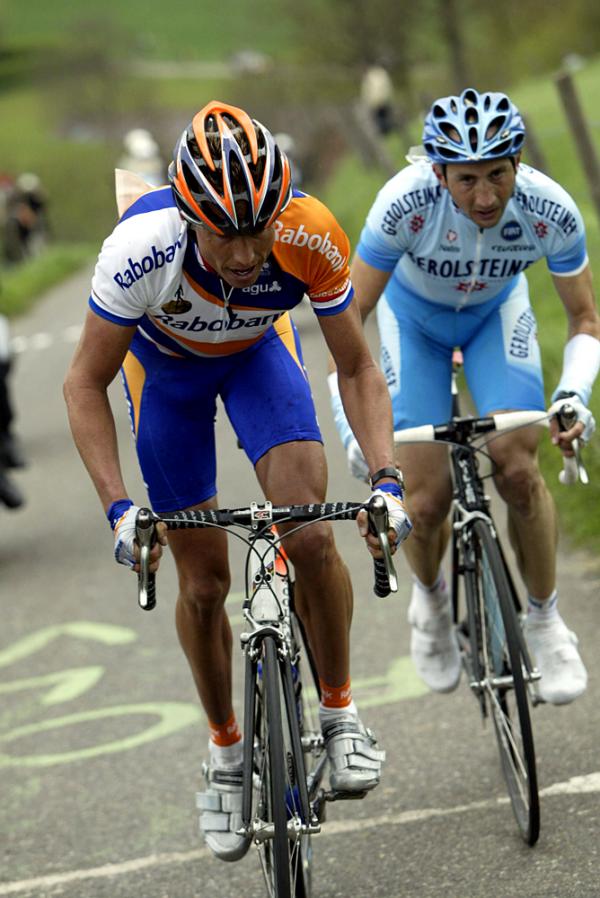
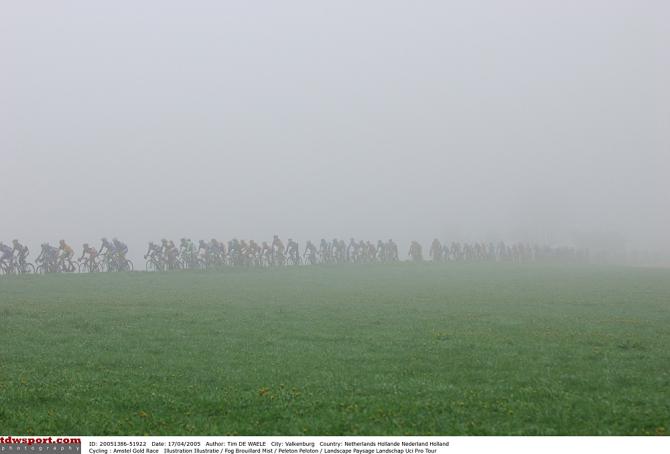
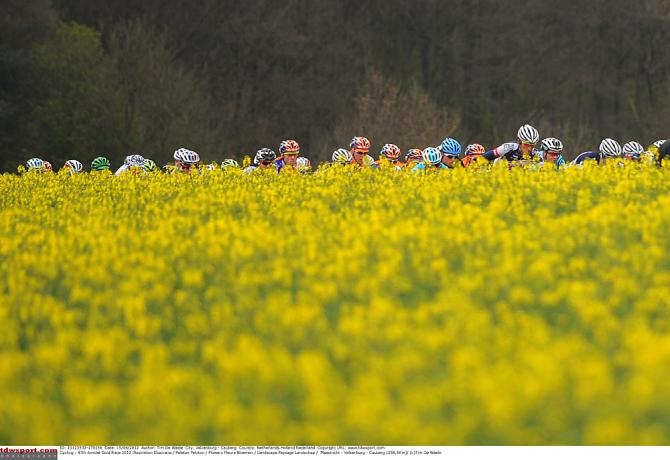
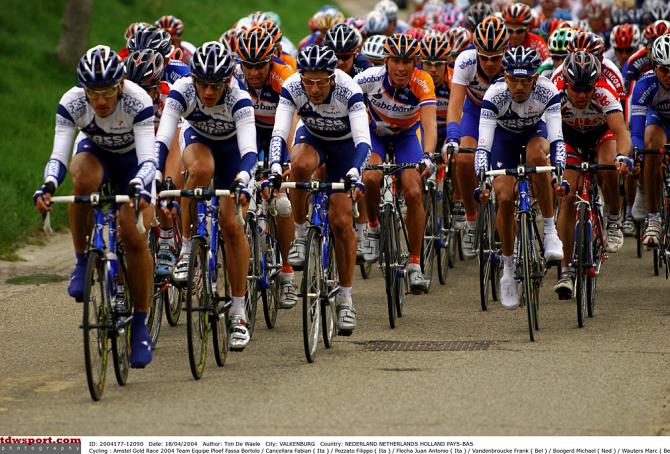
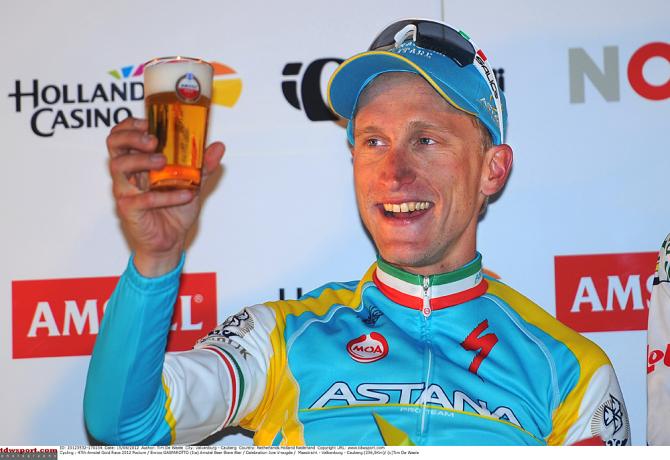
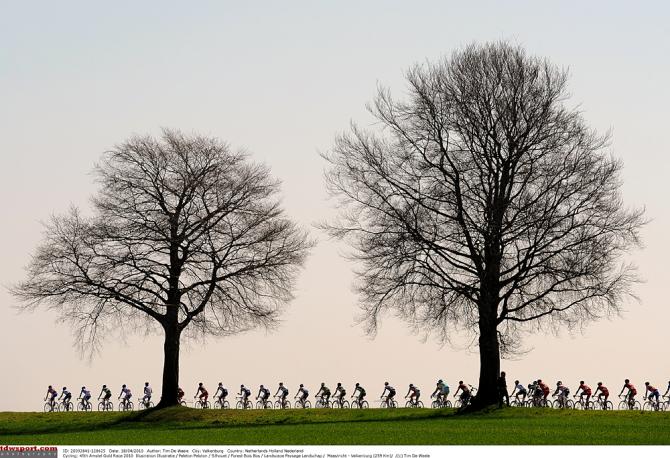
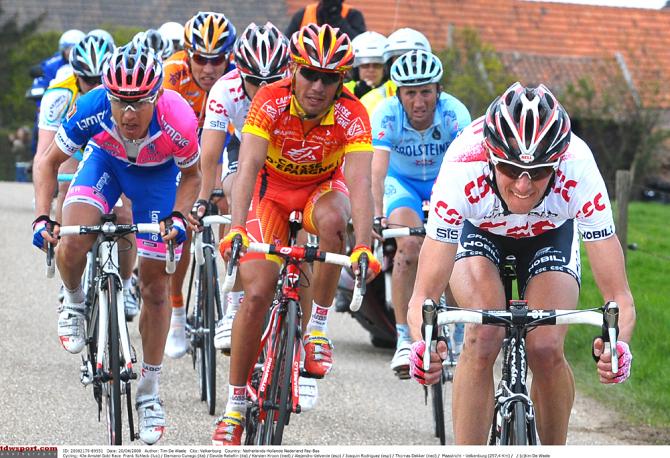
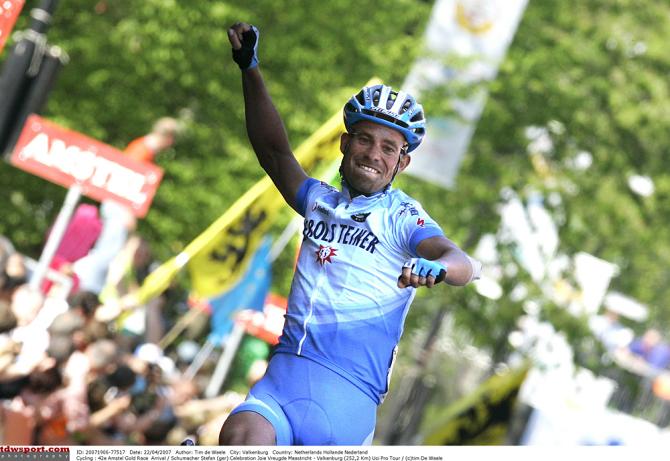
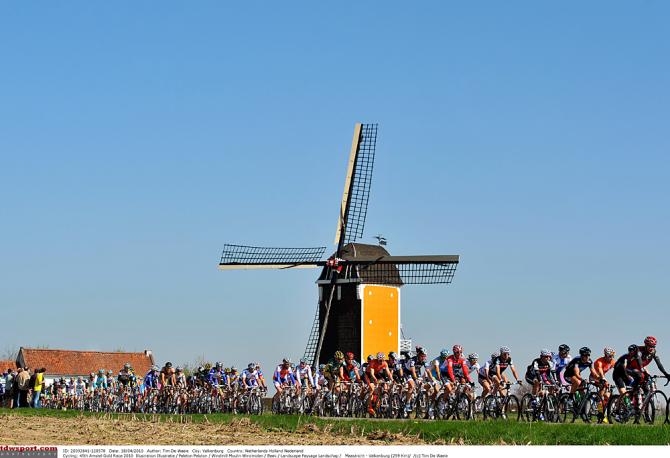
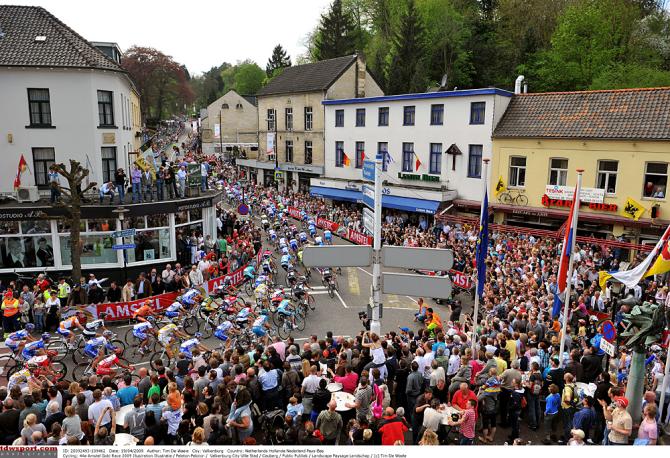
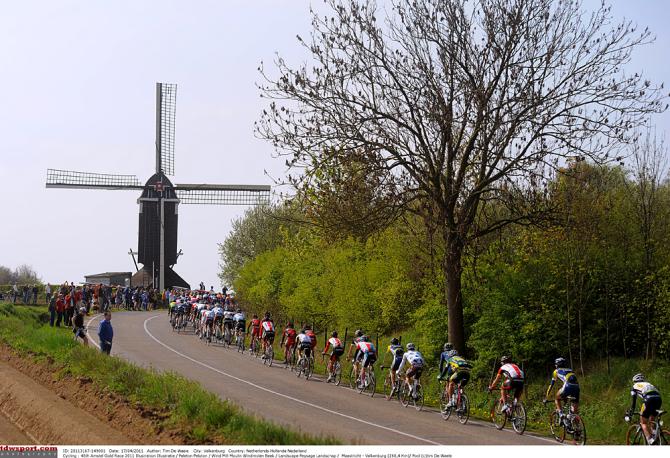
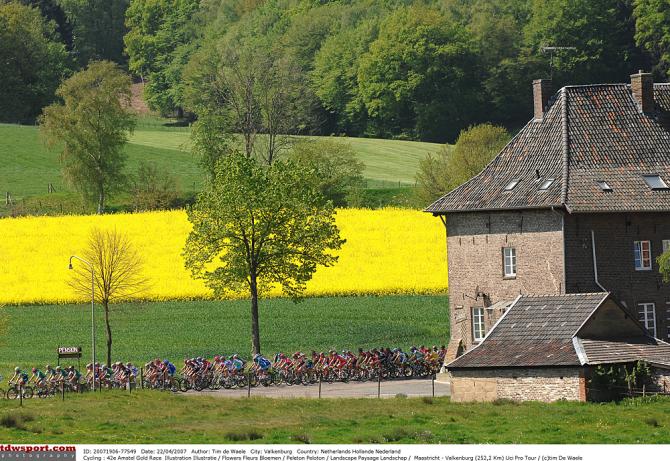
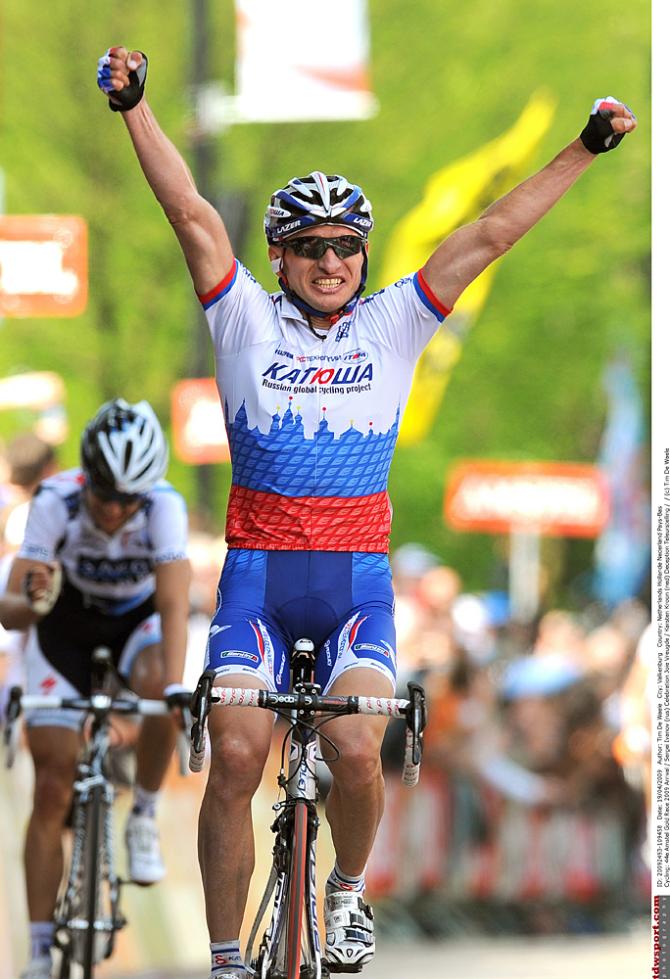
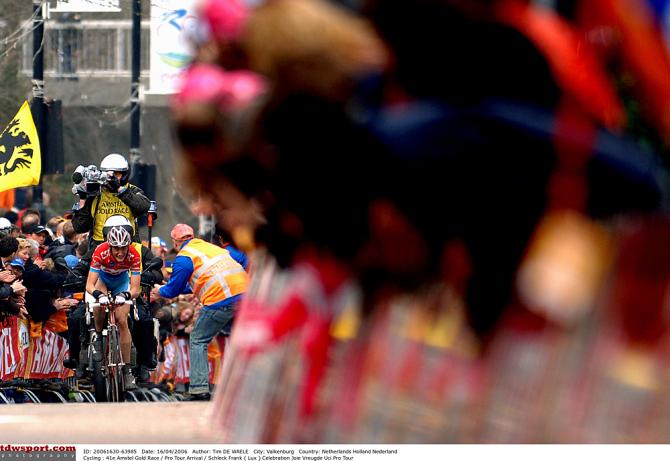
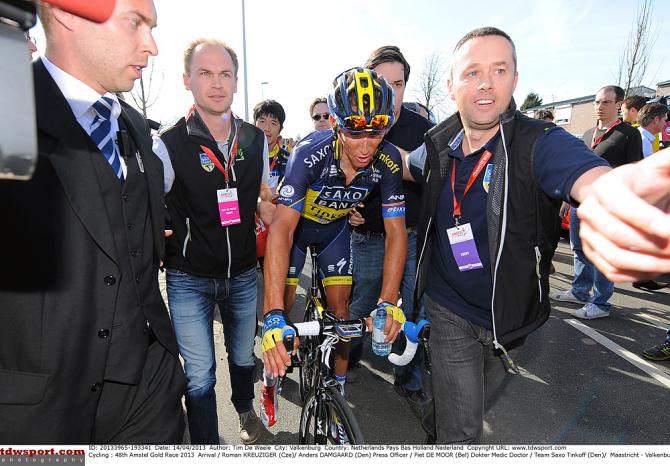
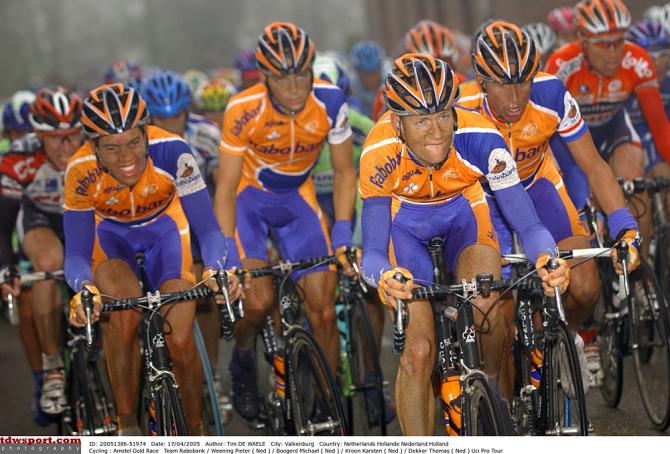
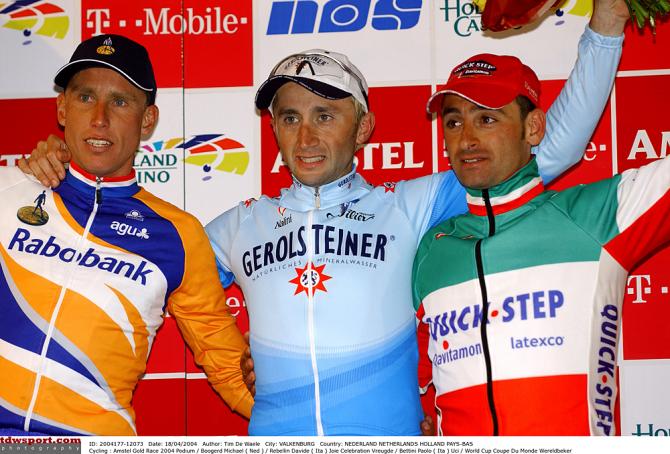
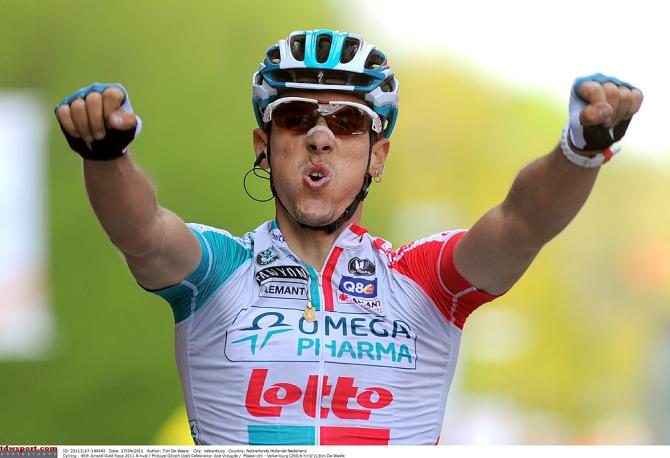
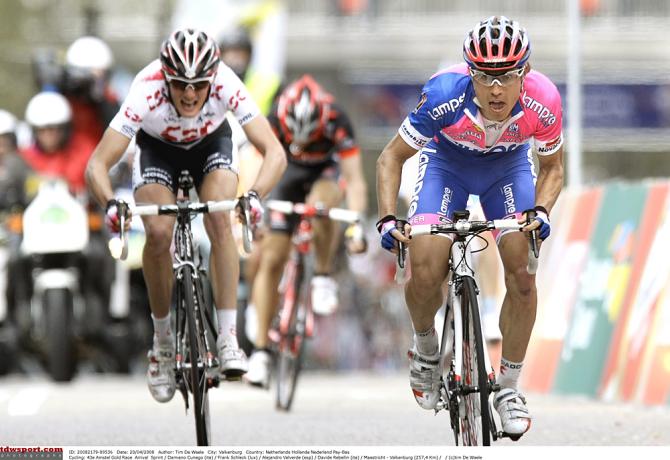
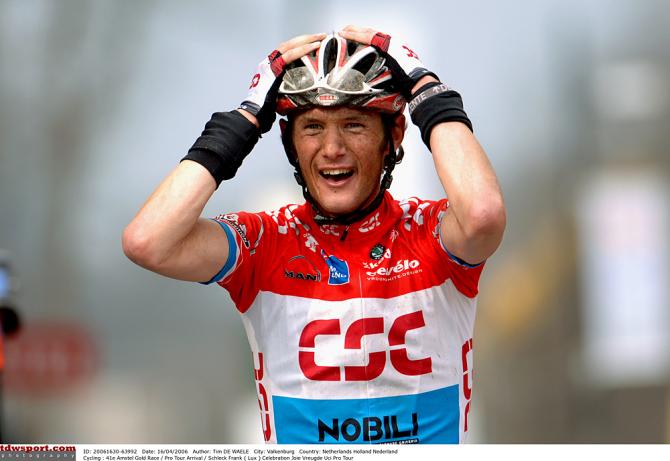
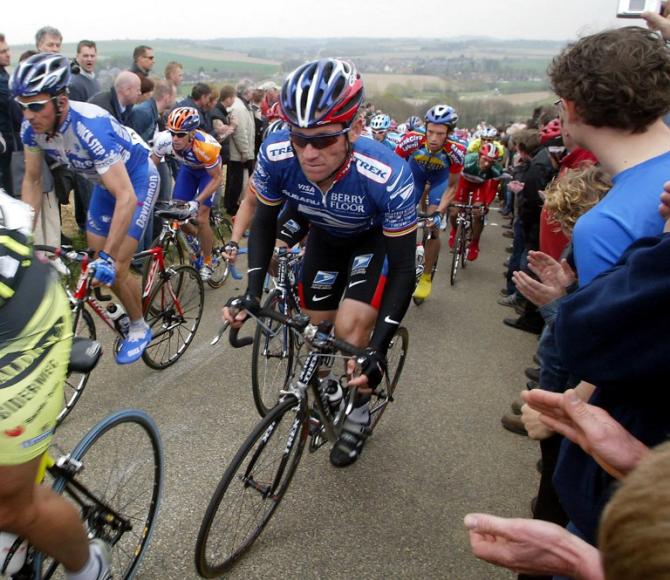
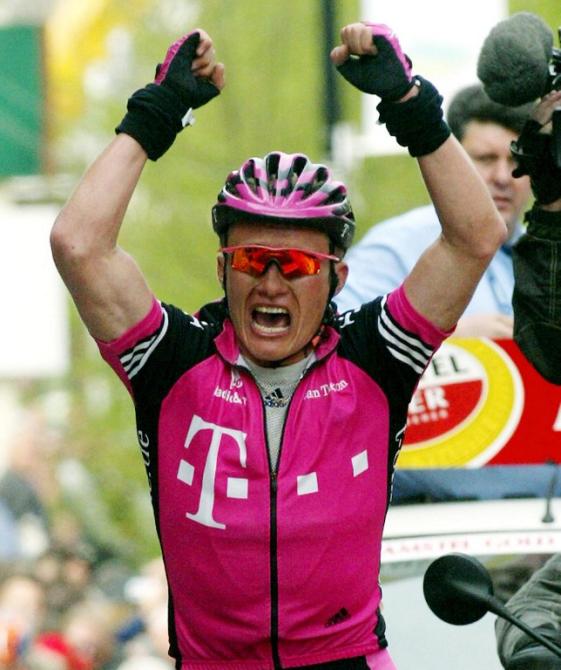
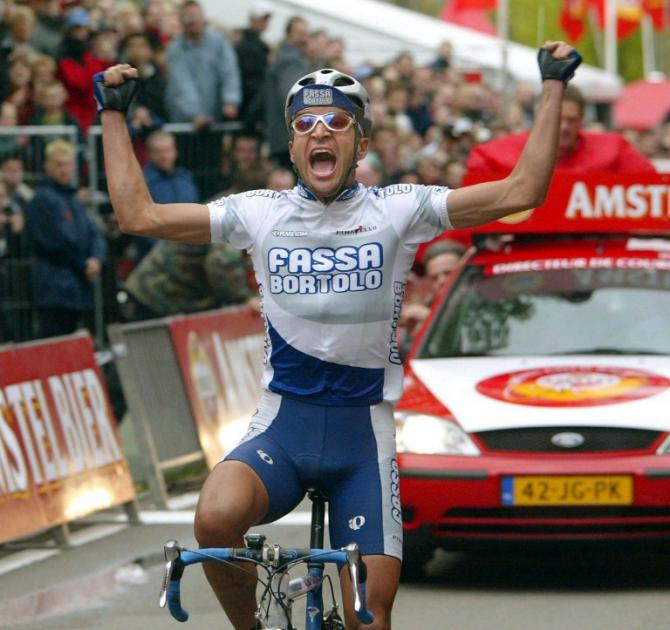
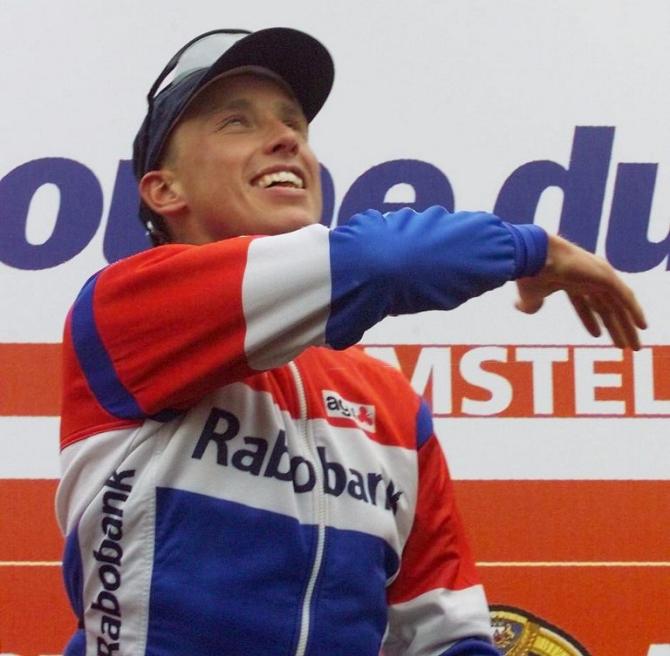
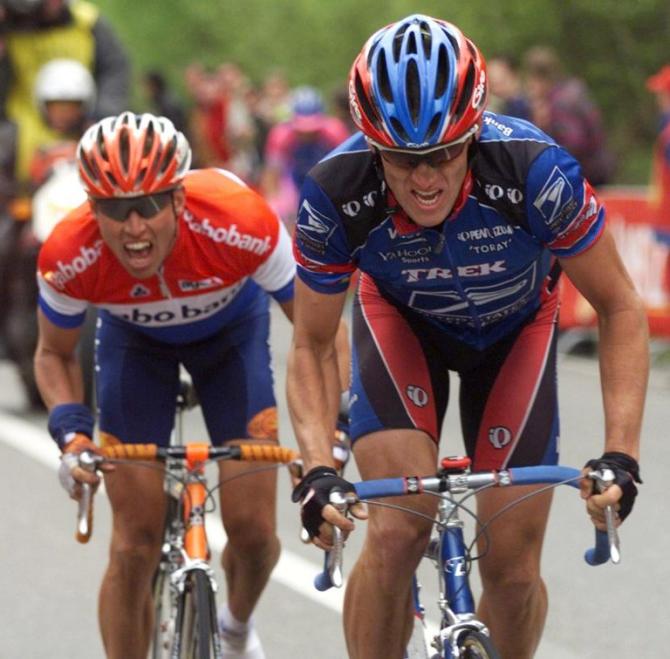
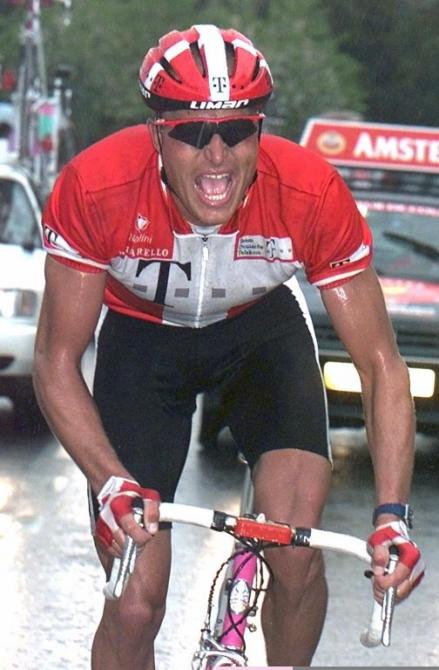
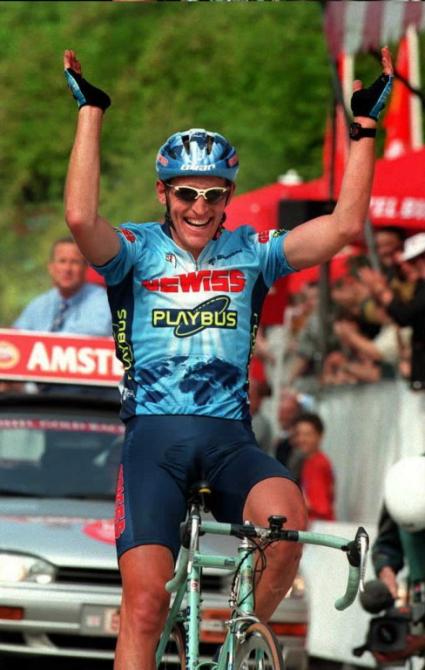
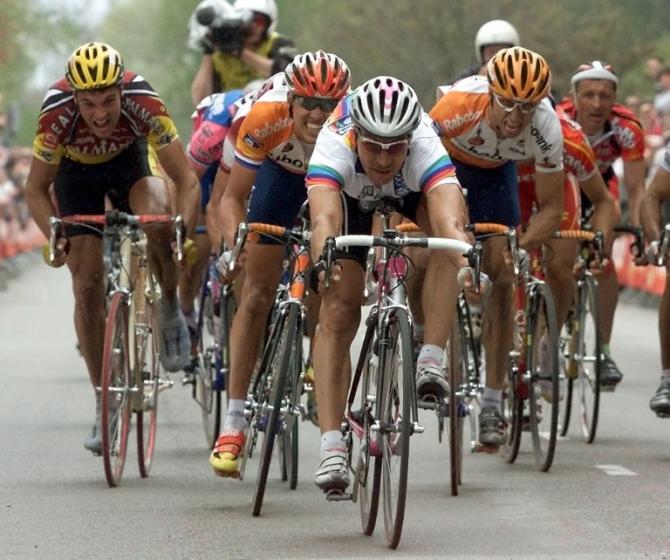
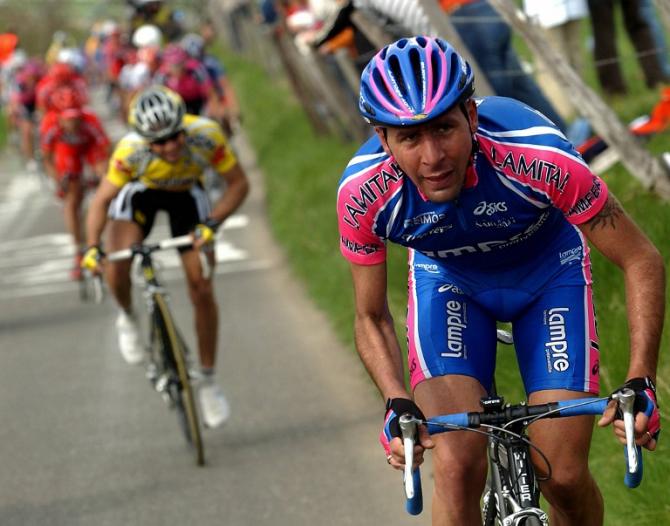
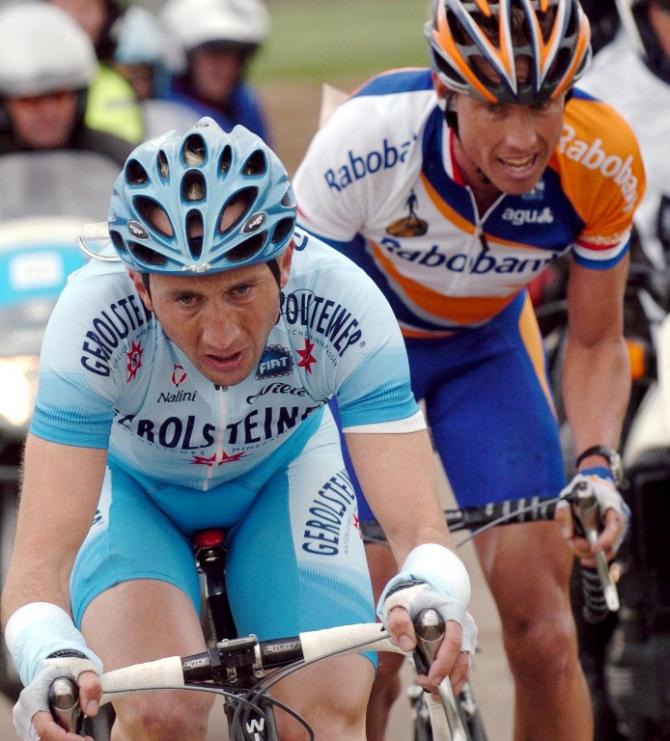
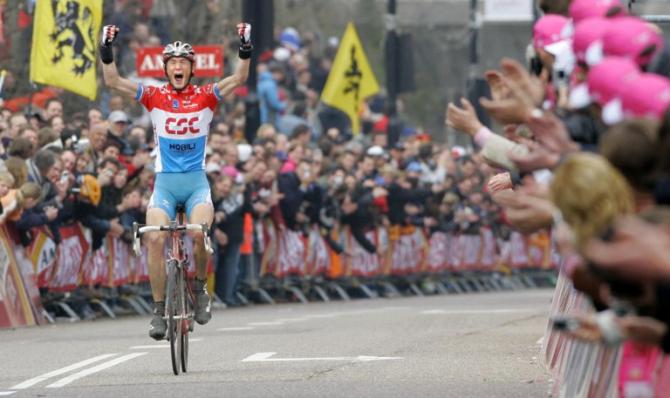
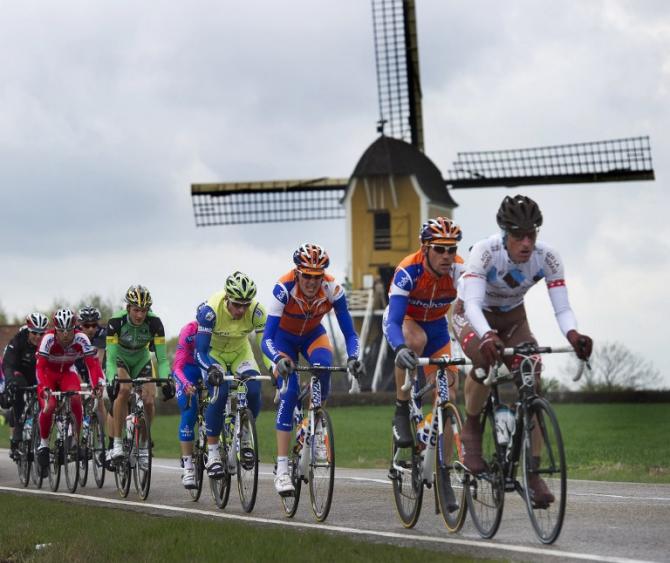
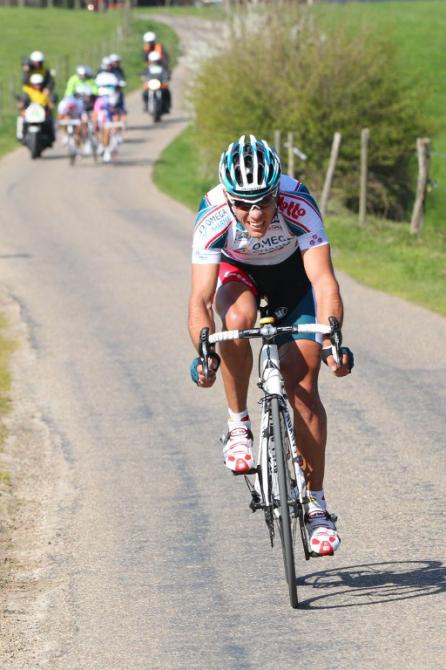
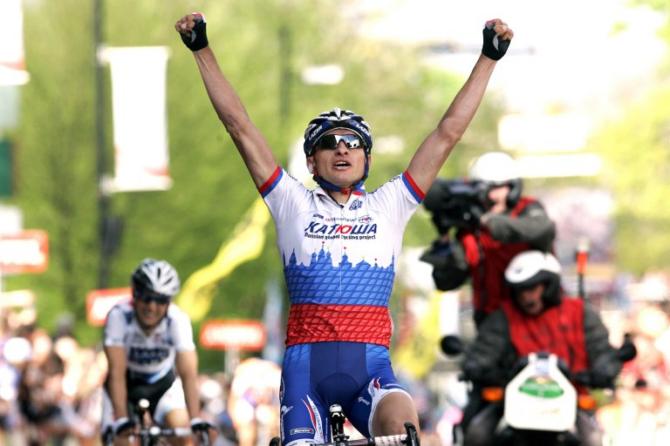
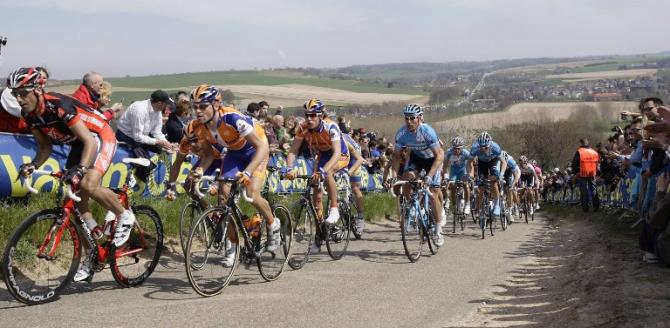
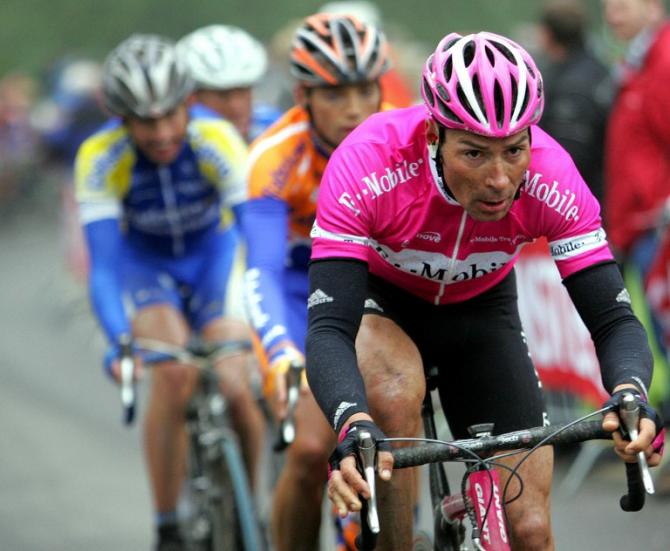
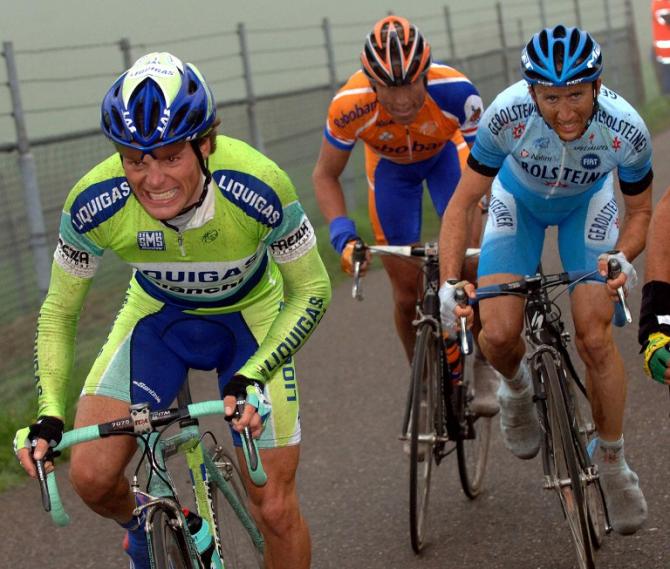
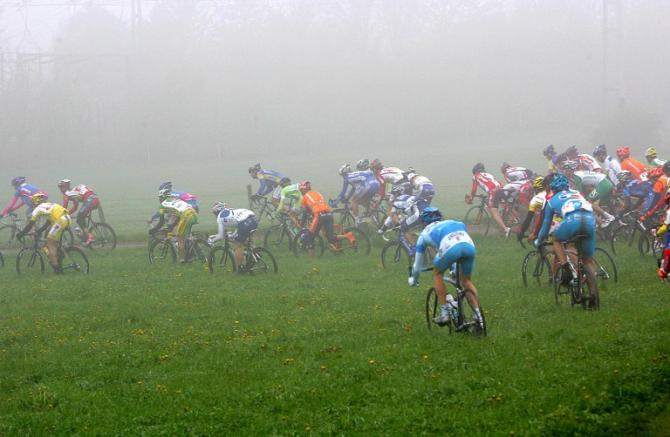
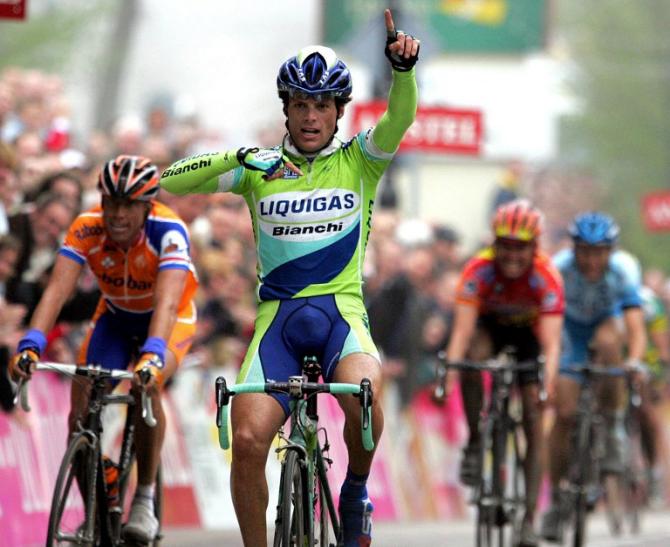
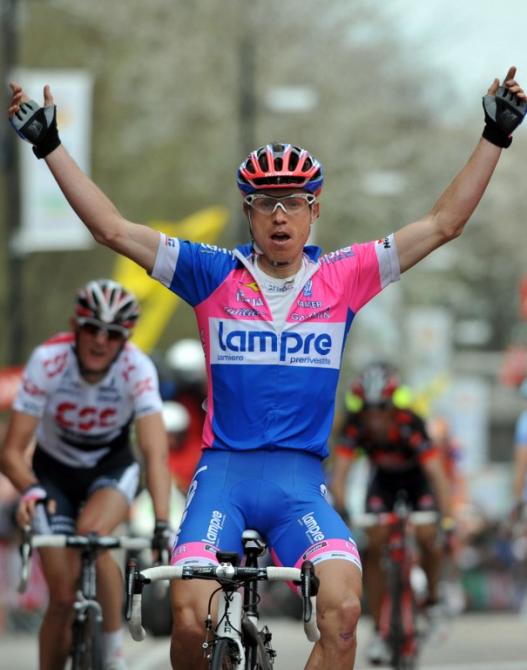
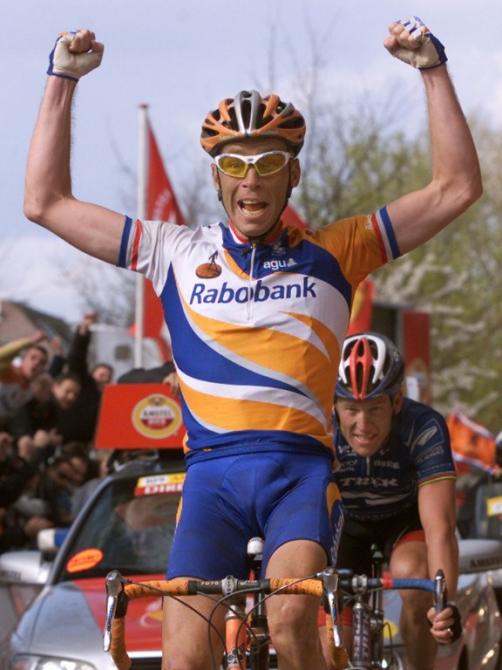
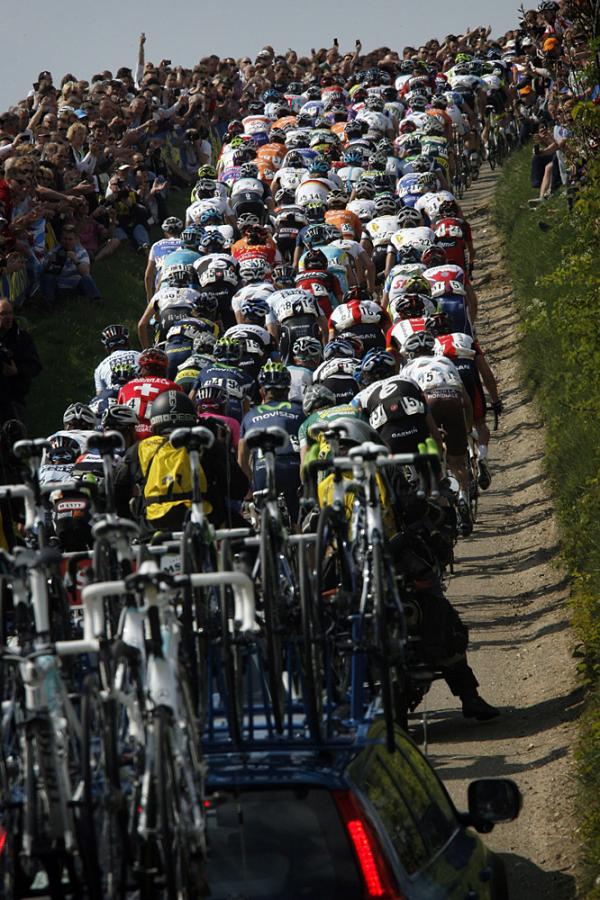
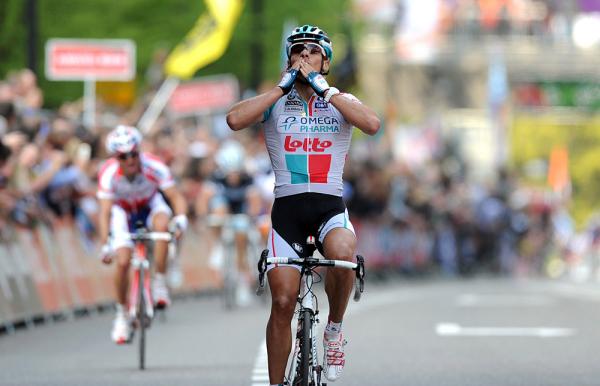
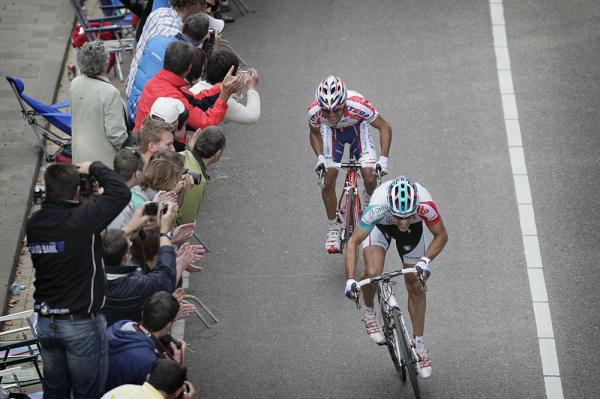
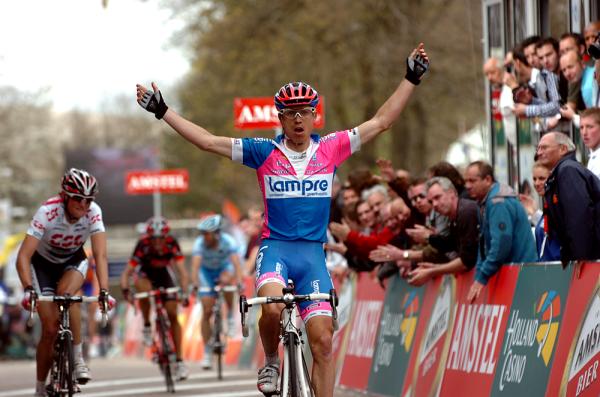
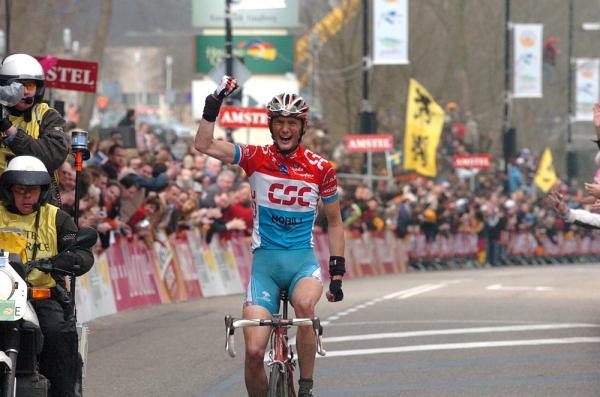
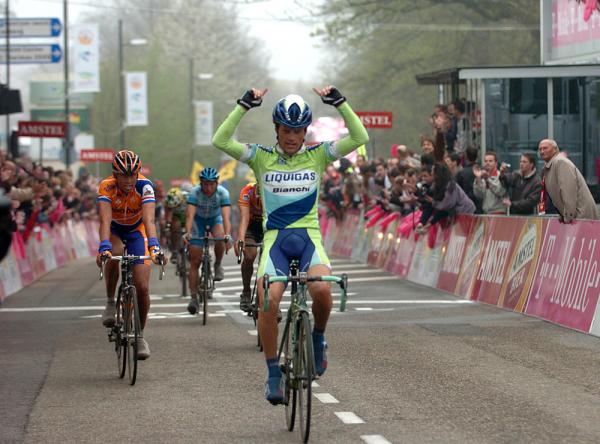
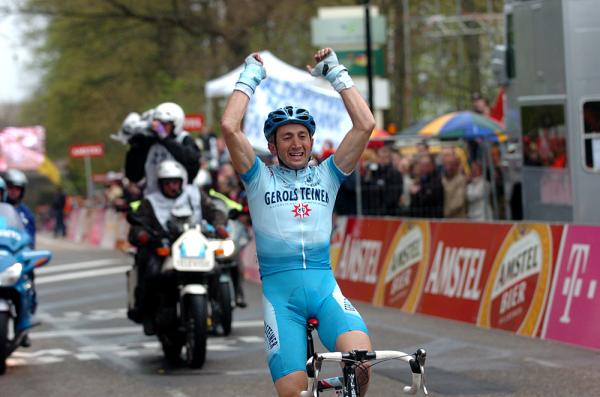
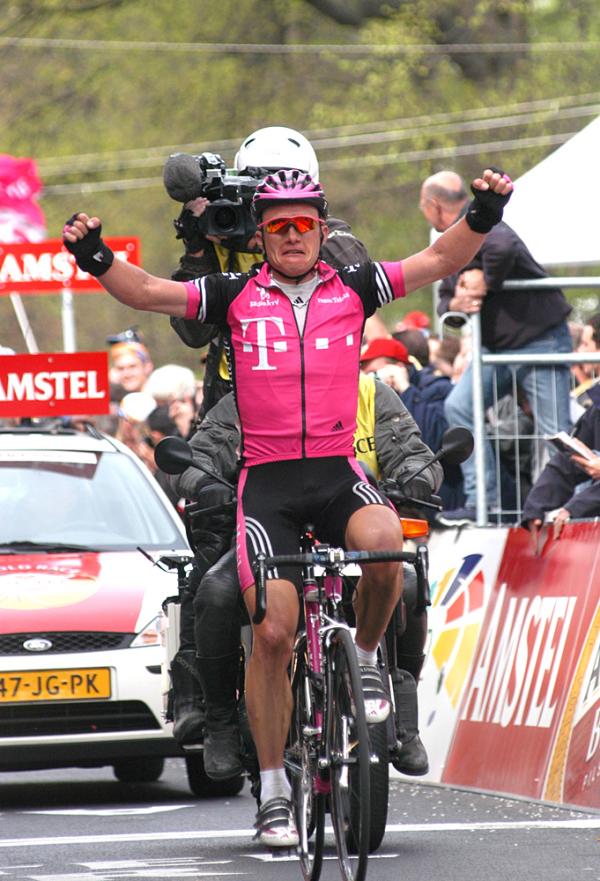
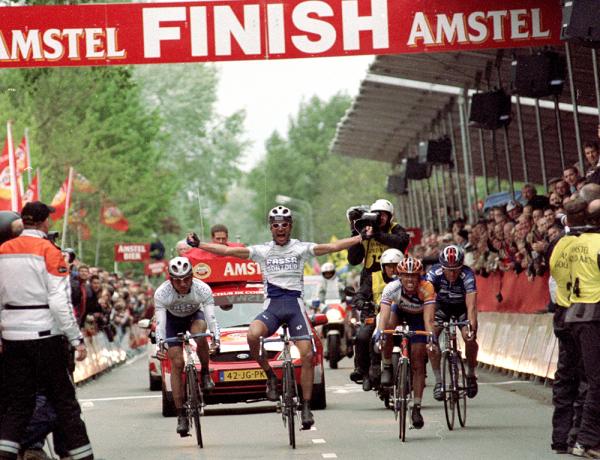
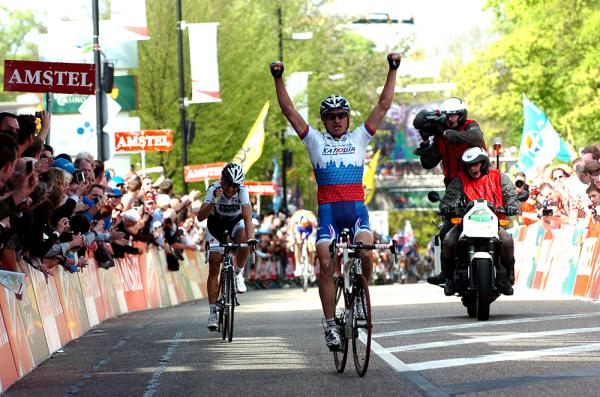
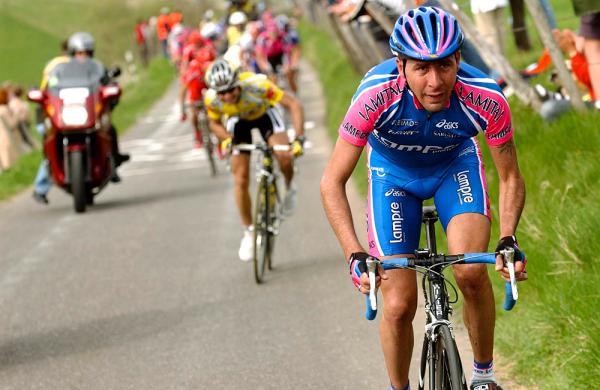
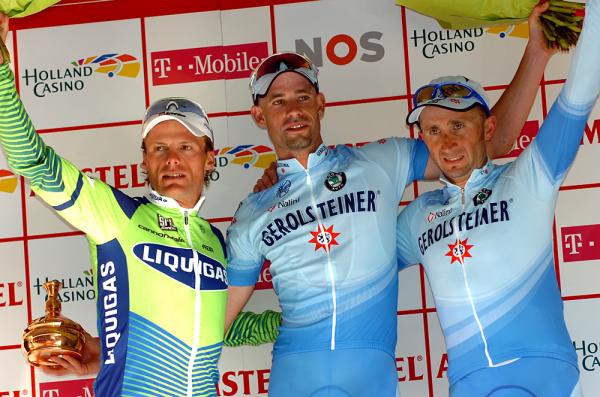
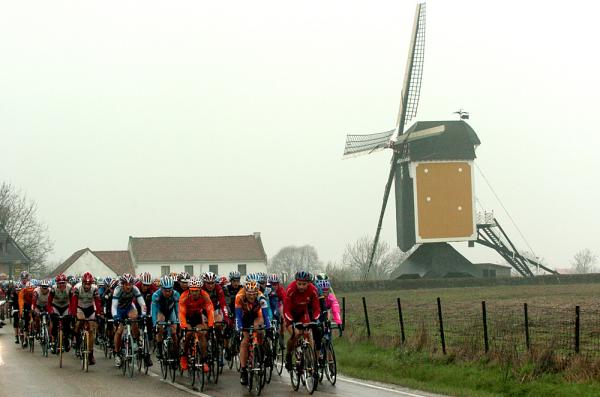
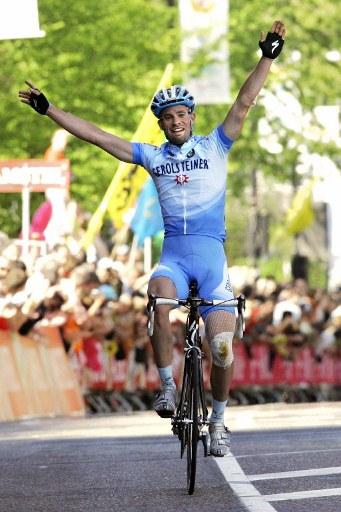
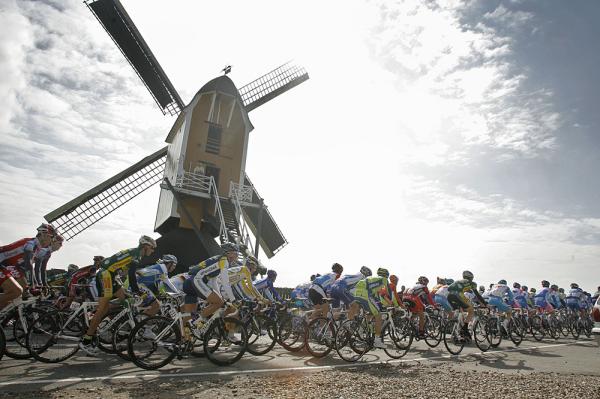
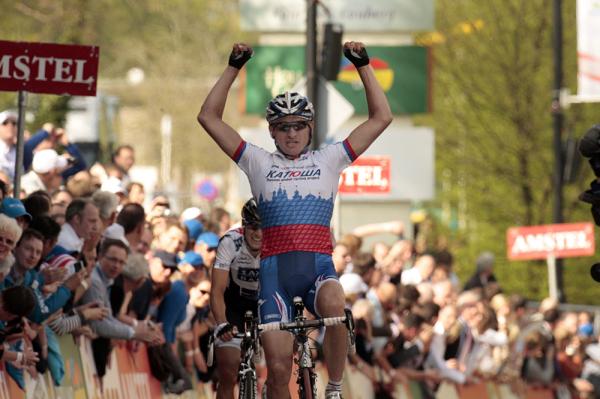
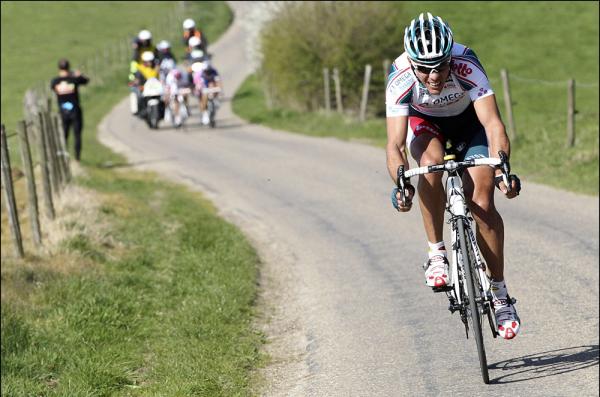
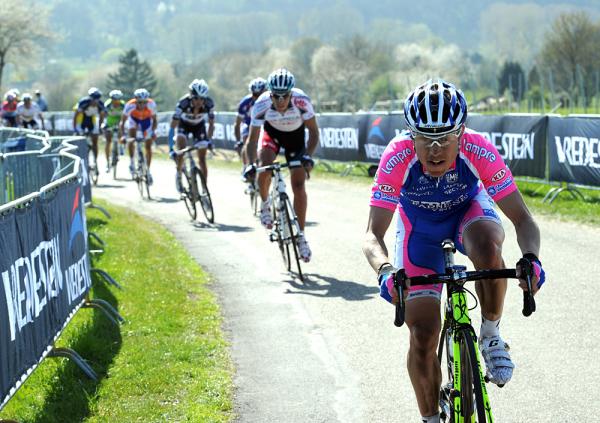
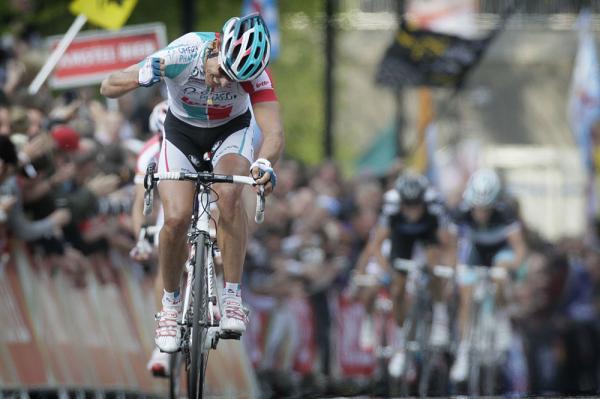
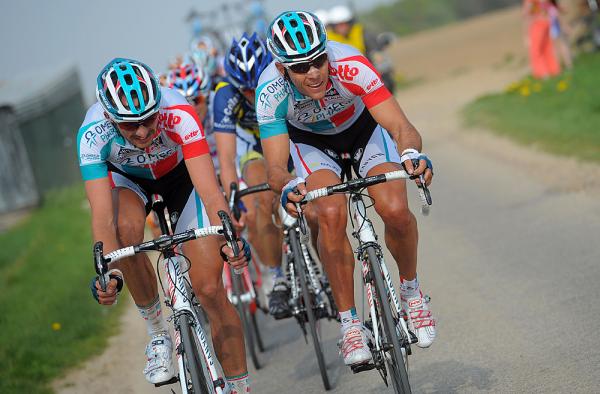
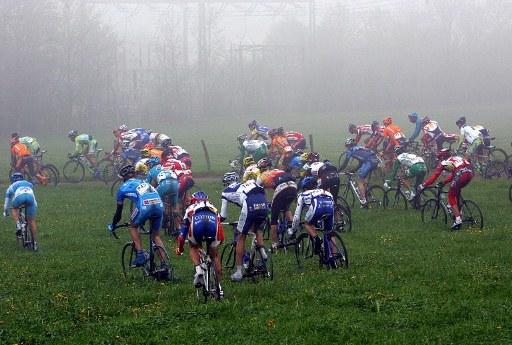
2017: Gilbert closes in on Raas' record
Philippe Gilbert (Quick-Step Floors) added a fourth Amstel Gold title to his palmares in 2017 in a particularly exciting edition of the Ardennes Classics opener, which seemed to benefit from the much-discussed removal of the Cauberg as the final climb of the day. Gilbert's fourth win in the Dutch Classic placed him one win behind all-time record holder Jan Raas, who won the race five times between 1977 and 1982. Gilbert followed 2015 winner Michal Kwiatkowski's attack on the Bemelberg. The duo had half a minute heading into the final kilometre, where Kwiatkowski opened the sprint but left too much road ahead of himself and allowed for another chapter to be written in Gilbert's Amstel Gold story.
2016: Gasparotto surprises again
Enrico Gasparotto (Wanty-Groupe Gobert) rolled back the years to win Amstel Gold Race for a second time in 2016. The Italian attacked on the final ascent of the Cauberg and was quickly joined by Michael Valgren (Tinkoff Team). The pair traded turns on the front before Gasparotto's experience and faster finish shone through, with the 2012 winner taking another victory in a two-man sprint. Sonny Colbrelli (Bardiani-CSF) led the peloton home in third place.
2015: Kwiatkowski sprints to victory
Michał Kwiatkowski claimed his first road race win as world champion with a perfectly executed sprint at the end of the 2015 Amstel Gold Race. The Pole was briefly distanced on the final ascent of the Cauberg by defending champion Philippe Gilbert (BMC Racing) and sprinter Michael Matthews (Orica-GreenEdge), but the Etixx-QuickStep rider fought back with several other riders, including Alejandro Valverde (Movistar) as the leading contenders crested the climb. Kwiatkowski was almost dead-last with around 500 metres to go but he ambled his way through a gap behind Tony Gallopin before unleashing a long-distance sprint. Valverde was second, and Matthews third.
2014: Gilbert adds a third
Get The Leadout Newsletter
The latest race content, interviews, features, reviews and expert buying guides, direct to your inbox!
Philippe Gilbert (BMC) won the Amstel Gold Race for a third time in his career in 2014 after making a signature winning move during the final ascent of the Cauberg. The former world champion and Ardennes Classics triple crown winner crossed the finish line with a victory salute ahead of chasers Jelle Vanendert (Lotto Belisol) in second and Simon Gerrans (Orica-GreenEdge) in third.
2013: Kreuziger solos to victory
Roman Kreuziger (Saxo-Tinkoff) rode into a solo victory during the 2013 Amstel Gold Race, winning by 22 seconds ahead of the main field. Previous two-time winner Philippe Gibert (BMC) made a bold attack over the Cauberg to try and bring Kreuziger in sight but his efforts fell short and he was caught by the chase group before the final sprint. Alejandro Valverde (Movistar) won the chase group sprint for second place and Simon Gerrans (Orica-GreenEdge) took third on the day.
2012: Gasparotto surprises
Enrico Gasparotto (Astana) surprised with a perfectly timed sprint to win the 2012 Amstel Gold Race. The Italian profited from the efforts of back-to-back winner Philippe Gilbert, who used his fuel to chase down a promising attack by sprinter Oscar Freire. When Gilbert faded, Peter Sagan opened up the sprint, but again, the push was too early. Gasparotto came past the Slovak, as did runner-up Jelle Vanendert. The win was the first of Astana's two Ardennes Classics wins that year, as Maxim Iglinskiy went on to win Liège - Bastogne - Liège.
2011: Gilbert defends in style
In 2011, Philippe Gilbert was only at the beginning of his year-long rampage against the peloton, but as the defending champion he was highly tipped to defend his Amstel Gold Race title after he won Brabantse Pijl. Despite the best efforts of Andy Schleck, who attempted to join his brother Fränk on the race's palmares with a 15km late-race breakaway, Gilbert's uphill kick proved unbeatable, even for runner-up Joaquin Rodriguez (Katusha) and Sky's Simon Gerrans.
2010: Gilbert keeps his promise
Leading up to the 2010 Amstel Gold Race, Philippe Gilbert made the audacious pronouncement that he intended to win the race. The Belgian skipped Paris-Roubaix in order to save himself for the event, and after coming fifth at the Brabantse Pijl he was convinced that he was in top shape. As the peloton reeled in attacker Alexander Kolobnev (Katusha), Gilbert launched his attack at the base of the Cauberg and powered to victory ahead of Ryder Hesjedal (Garmin) and Enrico Gasparotto (Astana) holding true to his promise.
2009: Ivanov wins from three-man breakaway
Serguei Ivanov at 34 wasn't a prolific winner, but the Russian had been nipping at a Classics victory over the course of his long career, and that promise finally came to fruition in the 2009 Amstel Gold Race. The Katusha rider helped to drive a three man breakaway that was initiated on the Keutenberg by Robert Gesink. The two, along with Karsten Kroon, managed to stay clear of an elite chasing group led to the line by a frustrated Gilbert. Ivanov delivered Katusha's 12th win of the season and his first and only Classic win to date.
2008: Cunego becomes a man of spring
With his second Monument under his belt at the 2007 Giro di Lombardia, Damiano Cunego put a renewed focus on the one-day races after failing to live up to his Grand Tour winning performance since the 2004 Giro d'Italia. After preparing for the Ardennes week in Spain, winning the Klasika Primavera Amorebieta, Cunego was clearly in form, but having never raced Amstel Gold Race before he wasn't the bookies' first pick. However, the race played into the hands of the diminutive Italian when Fränk Schleck started his efforts far too soon on the Cauberg and instead delivered Cunego perfectly to the win.
2007: Schumacher, Rebellin make it Gerolsteiner 1-2
In 2007, Stefan Schumacher followed his breakout 2006, where he won two Giro stages, the Eneco Tour and Tour of Poland with a strong performance in Tirreno-Adriatico, but few could have predicted he would claim his first and only Classic at the Amstel Gold Race. But together with teammates Fabian Wegmann and 2004 race winner Davide Rebellin, the bubbly water boys had the numbers in the nine-man leading group that emerged ahead of the Keutenberg. Schumi attacked with three kilometers to go, and the indecision behind allowed him to solo to victory, leaving Rebellin to mop up second ahead of Danilo Di Luca.
2006: Schleck gets a birthday bonus
In 2006, CSC's Fränk Schleck gave himself the best birthday present a professional rider could imagine: a Classic victory. Wearing his Luxembourg national champion's jersey, the new 26-year-old was a David in a group of Goliaths in the finale of the 41st Amstel Gold Race. As home favorite Michael Boogerd, previous winner Rebellin, Italian Paolo Bettini and a trio of T-Mobile riders watched each other behind, Schleck attacked inside 10km to go and held onto a 22 second advantage over Stefan Wessemann at the line, while Boogerd came third well behind.
2005: Di Luca rains on Rabobank's parade
With a six year drought for the Dutch in the Amstel Gold Race, Rabobank had plenty of pressure to deliver a victory in 2005, but it was instead an Italian from an Italian team who stood on the top step at the Cauberg: Danilo Di Luca of Liquigas. The Rabobank team had the race firmly in control at the base of the Cauberg, with Erik Dekker leading into the climb, Karsten Kroon for the next part and then Boogerd to finish the job for Freire, but the Spaniard lost contact when Di Luca attacked, leaving Boogerd to make the best of the situation with second. Mirko Celestino (Domina Vacanze) claimed third not far behind.
2004: First of the Rebellin triple
He had a palmares full of podiums but no a Classics victory to his name, and Davide Rebellin finally turned his bad luck around with the first of an unprecedented triple crown of Ardennes Classics at the 2004 Amstel Gold Race. The decisive move came on the Eyserbosweg when Matthias Kessler attacked and took an elite group including Rebellin, Boogerd, Bettini, Di Luca and Peter Van Petegem with him. Rebellin attacked on the Fromberg, and only the Dutchman could come along. The pair cooperated until the final climb but Boogerd's nerves got the better of him and he went too early, allowing the Italian to nab his first major Classic win. He went on to win La Flèche Wallonne and Liège - Bastogne - Liège, a triple only one other rider has since achieved.
2003: Vinokourov gets his first one-day win
Famous for his late-race attacks, and with a palmares full of stage victories, it was hard to believe that Alexander Vinokourov hadn't won a major one-day event before the 2003 Amstel Gold Race. The Kazakh's win followed up an emotional March in which he lost his friend and compatriot Andrei Kivilev in Paris-Nice and then went on to claim the overall victory in his honour. After 40 days of mourning and on Easter Sunday, Vinokourov bridged up to the final selection with 15km to go, then attacked with 5km to go as the group with Boogerd, Rebellin, Di Luca, Lance Armstrong and more waited for him to tire. Having survived the recent emotional suffering, the physical pain of the Cauberg was no match for Vinokourov's steely spirit and he took the win four seconds ahead of Boogerd and Di Luca.
2002: It's Bartoli's turn
Michele Bartoli had been a part of Mapei's Classics powerhouse, but after watching teammate after teammate win, he moved across to the Italian Fassa Bortolo team to get his own chance. The two-time Liège-Bastogne-Liège and 1996 Tour of Flanders winner seized the opportunity in the 2002 Amstel Gold Race. With the help of teammate Ivanov, Bartoli followed Boogerd on his attack on the Eyserbosweg, and found himself in the winning move with Ivanov and Armstrong. The four man group resisted for 39km, and with Ivanov to cover the attacks from Armstrong, Bartoli was able to save himself for the finale, and the Russian delivered him to his only triumph in the Dutch Classic.

Laura Weislo has been with Cyclingnews since 2006 after making a switch from a career in science. As Managing Editor, she coordinates coverage for North American events and global news. As former elite-level road racer who dabbled in cyclo-cross and track, Laura has a passion for all three disciplines. When not working she likes to go camping and explore lesser traveled roads, paths and gravel tracks. Laura specialises in covering doping, anti-doping, UCI governance and performing data analysis.